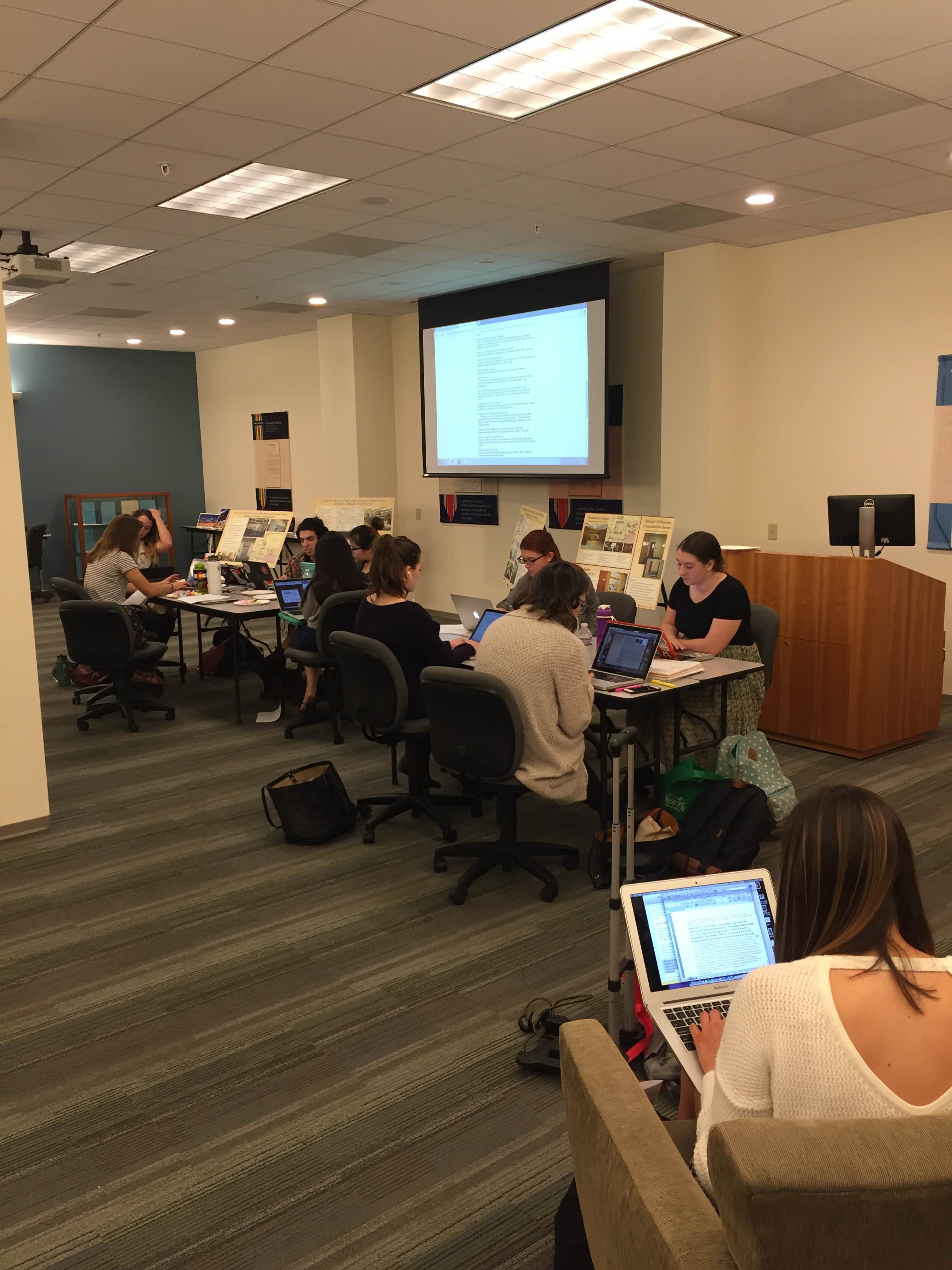Adding to Wikipedia for Women’s History Month
April 11, 2016

College students have often been warned of the inaccuracies and evils that lie in Wikipedia pages; it is looked upon as sophomoric to use such a website as an academic source. Despite the plea of professors, we (college students or not) still find ourselves typing the website into our URL to find out the name of that one movie–you know, the one with the evil guy–or the age of the celebrity who never ages.
But, how well does Wikipedia do in terms of holistic representation? Is everyone and everything of notable worth really on there? After all, anyone can edit or add pages to the FLOSS (free/libre open-source software). According to the
International Journal of Communication’s
article “Gender Bias in Wikipedia and Britannica, “women [make] up about 1.1 perecent of participants (…) and a likely hindrance to participation includes a lack of mentors and role models, language usage, a male-dominated competitive worldview, lack of women-centered perspectives…and the identity or construal of women in the community.” In addition, our history books are filled with important male figures, the overwhelming majority of whom are white and heterosexual. And trans role models and figures? Nearly invisible.
On March 3rd and 4th, the
Phi Alpha
Theta (History Honors Society), the
Women’s Studies Minor Program
, and the Office of Cross-Cultural Engagement, with additional support from the Student Government Association, Leatherby Libraries, and Chapman Feminists took this issue head-on through their first installment of the Feminist Wikithon. Rose Mackenzie, president of Chapman Feminists, emphasized the importance of this on-campus event: “Womyn, particularly queer and trans womyn of color, are systematically screened out of books and classrooms so as to discredit and devalue their importance. It’s up to us to construct the reality in which we want to live.”
Persons of all genders that had not been represented on Wikipedia were nominated to be added to the online portal by Chapman students through OrgSync the previous week. Students were then invited to a computer lab at Leatherby Libraries to input the nominations. “It was really great to be able to use a lot of the library’s resources to fill in some gaps and create new Wikipedia entries for so many ‘sheroes’,” said Bijan Kazerooni, president of Phi Alpha Theta. “It just goes to show that despite the vast wealth of information found on the Internet, we can still learn and share information from books.”
Feminists inputted to Wikipedia included spoken-word poets, theorists, scientists, activists, and even Chapman professors! According to Professor CK Magliola, who heads up the Women’s Studies Program, “Activism comes in many forms and this is a great example of students recognizing the significance and politics of knowledge production. I’m proud of the Women’s Studies seniors and the History Honors Society students for doing this work and making Wikipedia a tad more intersectional and feminist.” Throughout Women’s History month, universities and high schools across the country are hosting Feminist Wikithons to edit and expand upon feminists who have been systematically erased from cultural history. The inclusion of marginalized leaders in our cultural memory is integral to becoming better global citizens. The Women’s Studies Minor Program and the Department of Cross-Cultural Engagement hopes to continue this digital tradition next year.
